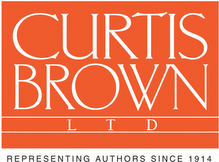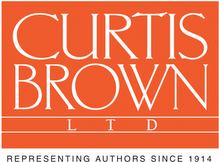How To Survive With Less Editorial Support
Nathan Bransford, literary agent for Curtis Brown, Ltd. blogged yesterday about the book imprint “12″ which only publishes 12 books a year—one per month—and attempts to make each one a bestseller.
As part of this, he points to Moon Rat’s blog, who has some interesting advice for novelists. This advice stems from the fact that most publishers DO NOT follow the “12″ model and instead may attempt to fill a quota, and often give very little editorial support to books prior to them being published. This inattention sometimes means:
- The agent hasn’t read the entire manuscript
- Editors don’t have time to work on your “perfect” manuscript
- The publicist has little time to devote to your book
- Salespeople haven’t read your book before they sell it
What is the advice in light of this situation? (text simplified by me)
Don’t rush out your masterpiece. Take your time and gestate over each book and make it as good as you can, because the editing support may not be there. As part of this, join a critique group.
Shop your project to find the right editorial situation.
Don’t let the publishing “inattention” crisis become your artistic crisis, too.
Make sure to push your editor.
Know your editor before you sign a contract. Pinpoint the editor’s reason for acquisition—are they passionate about the book? Or just because they see commercial potential? This can mean it is going to be thrown to the wall to see if it sticks.
Do what you can to ascertain the potential editor’s positive enthusiasm. Ask questions like, “What exactly in my book appealed to you the most?” or “Did you find any of the characters particularly relatable? Why?”
Discuss the editing future of the manuscript with your editor. Make sure their is a plan TO edit.
And the last bit of advice?
Be suspect if an editor (or agent, for that matter) leads you to believe your book is perfect as is. Anyone who has ever worked on book development knows the value of more than one set of eyes.
Overall, we as authors need to make our books the best they can be. No one else will necessarily help us. This especially applies to new authors. Our first book and series is the most important for getting our career on the right track.
This is one of the reasons that I am holding off going to the fall ACFW conference. I am not ready to pitch yet. My manuscript needs more work than I can give it in the next two months. I am learning and growing as a writer even now, and I can see more clearly now the holes my manuscript has.
For me, I call this “comic book syndrome”. Why? When I was young I drew full length super-hero comic books. Overall, I wrote about fifteen different comic books. But they would take so long that by the time I got to the end my art style had improved and I had to go back and redo the cover. But then the cover was SO much better than the first page. But what could I do without redrawing the whole thing? So I left it.
Thankfully with writing I CAN FIX IT. But it will take time.
It would be great to go to the conference anyway, but the finances are not there, and I’m not willing to scrape the barrel if I’m not ready.
The other reason comes from 1 Kings 16:34—
In Ahab’s time, Hiel of Bethel rebuilt Jericho. He laid its foundations at the cost of his firstborn son Abiram, and he set up its gates at the cost of his youngest son Segub, in accordance with the word of the Lord spoken by Joshua son of Nun.
For me, I am not willing to push myself so hard that I lose the time with my kids. I do not want to lay the foundations and gates of my book and series at the cost of the relationship I have with my children.
Isn’t it interesting that the Bible names these two children? They were real people whom God cared about. But this father, knowing and ignoring the prophecy, lost them.
May it not be said so of us.
Keep your life balanced!


At Mt. Hermon after I talked with Steve Laube, I asked if it would be okay if I didn’t submit my manuscript for a long time. 6 months at least.
Not only was that ok, it seemed to impress him that I would be hesitant to send him the manuscript too soon.
That is good encouragement, Marcus! Part of the issue is that my daughter’s manuscript is in the editing process too, which adds to the amount of work.
But I can imagine that there is great value in meeting face to face.
I actually have my pitch sheet half way done, and I also have a full proposal probably half done as well, so I’m not that far from being ready in that way.
I’ll have to pray about this.
How has your manuscript been coming along? I think you finished the first draft before the Mt. Hermon conference, but I can’t remember exactly. If so, how are your edits coming?